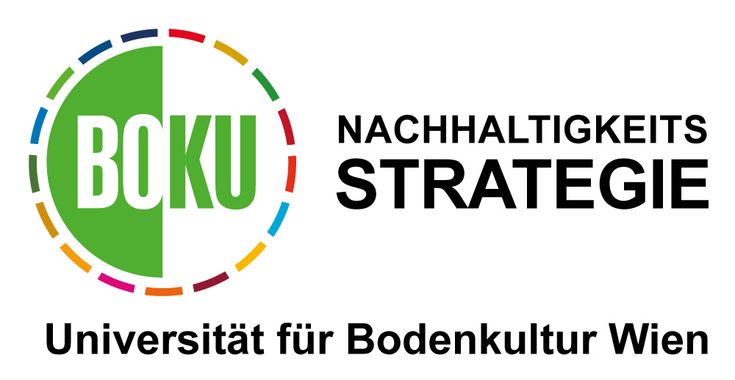BOKU Sustainability Strategy

Sustainability is of particular importance in research, teaching and environmental management at the University of Natural Resources and Life Sciences. This status is to be expanded further with the sustainability strategy. In this way, BOKU wants to make a greater contribution to safeguarding the quality of life and livelihoods for current and future generations in view of the Grand Challenges. Our actions in all areas of work follow the maxim: "Always act in such a way that the opportunities for the future are not diminished!"
After a broad-based process for an initial sustainability strategy (2014-18), the revision and further development of the sustainability strategy for 2019-24 took place in 2019.
In 2020, the development of the BOKU Sustainability Report 2019 started, which will then appear annually and will report on progress and measures in the key subject areas.
Guidelines of the BOKU sustainability strategy
The BOKU sustainability strategy follows the following guidelines based on the decision of the Rectorate in April 2014.
Take responsibility
Universities have a special responsibility on the way to a more sustainable world. They contribute to the further development of this concept and are pioneers and initiators for ideas and strategies for sustainable development in society. The BOKU is facing up to this responsibility with increased commitment.
Embed sustainability in all areas of the university
Sustainability at the BOKU means that this guiding principle is anchored in all areas of its work, i.e. in research, teaching, in day-to-day operations (environmental management, social responsibility), in its organizational culture and strategic issues, as well as in the interaction between the BOKU and society (knowledge transfer, social Discourse, public relations).
Put sustainability on a broad basis: Include BOKU members
BOKU employees from research, teaching and administration as well as BOKU students form the foundation of BOKU's sustainability work. Only with their help will sustainability become an essential pillar of the BOKU. BOKU alumni and the spatial and thematic environment of the BOKU are also invited to participate. The BOKU takes these suggestions and ideas seriously and integrates them into implementation as far as possible.
Implement sustainability: concrete goals and feasible measures
A sustainability strategy must be measured against specific activities and successes. Therefore, the step-by-step implementation of the goals and measures developed as part of the sustainability strategy is the central part of the strategy. Measures that can be implemented in the short, medium and long term are specified in a project and implementation plan, which describes the measures in more detail, defines responsibilities and schedules.
Expand, reflect and update sustainability
In 2013 and 2014, the first goals and measures of the BOKU sustainability strategy were developed in a broad, participatory process. This process is subject to a periodic reassessment, processing and addition of the goals and measures in order to take current developments and improved possibilities for an expansion of the sustainability activities into account. Therefore, the implementation work is also subject to continuous reflection.

